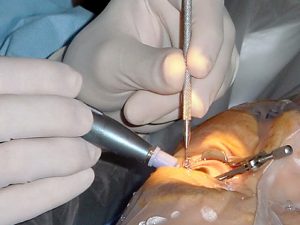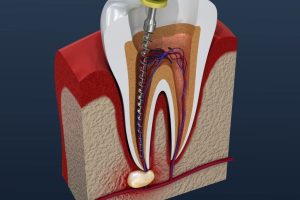Making a Difference: How to Become a Nurse Who Saves Lives
Do you have a caring heart? Are you interested in medicine? Are you searching for a new career?
If so, you should consider becoming a nurse.
Nurses are integral to hospitals, wellness centers, and other medical establishments. They act as bridges between doctors and patients and ensure the best quality care possible.
Wondering how to become a nurse? Then read on. Here’s everything you need to know.
Figure Out What Type of Nurse You Want to Be
First and foremost, you need to figure out what type of nurse you want to be. There are a few different options, each of which carries different responsibilities. These include the following.
Registered Nurses (RNs)
A registered nurse works under a physician and is not allowed to diagnose patients or prescribe medications. That said, RNs have many responsibilities. These include administering medicine, providing care to patients, communicating with other health professionals, and more.
Registered nurses are what is generally thought of when people think of nurses. They work in all wings of hospitals and are highly visible to patients and visitors alike.
Certified Nursing Assistants (CNAs)
A certified nursing assistant is essentially just an aide to the registered nurses. These individuals have fewer responsibilities but are still highly involved in patient care. They handle more of the hands-on responsibilities, such as helping patients move around and providing assistance in grooming.
Licensed Practical Nurses (LPNs)
Licensed practical nurses are a step between registered nurses and certified nursing assistants. They have all of the responsibilities of certified nursing assistants and some of the responsibilities of registered nurses. Their pay aligns with this as well.
Nurse Practitioners (NPs)
Nurse practitioners are a combination of nurse and physician. They don’t have quite as many responsibilities as physicians but are able to do many of the things that physicians do. These things include writing prescriptions, ordering tests, diagnosing patients, and more.
Obtain Adequate Education
Once you’ve decided what type of nurse you’d like to be, you’ll need to obtain an adequate education. This will vary based on the path you’re pursuing.
CNAs
Certified nursing assistants don’t need to go to college. They just need to complete a specialized training program (like this UMA nursing school program). This usually requires 120 hours of work and can usually be completed within 12 weeks.
LPNs
Like CNAs, licensed practical nurses don’t require a college education. They can also start their careers by completing a specialized training program. The length of these programs varies.
RNs
Curious as to how to become a registered nurse? Registered nurses do indeed require a college education.
At a minimum, they need an associate’s degree from a nursing school. However, if they want to maximize their total earnings over time, it’s better for them to complete a bachelor’s degree in nursing.
Note, if you’re already a nurse of some kind, you can upgrade to the next level by enrolling in a bridge program. This will reduce the amount of time that it takes for you to obtain the degree.
For instance, if you’re a licensed practical nurse that wants to be an RN, you can engage in an LPN-to-RN program. This will take, say, a year of education as opposed to 2 or 3.
NPs
Wondering how to become a nurse practitioner? Nurse practitioners must earn a master’s degree in nursing.
This, of course, requires earning a bachelor’s degree first. If you’re already an RN, you can enroll in a bridge program as a means of becoming an NP.
Pass a Licensing Exam
Once you’ve completed your education, you’ll need to pass a licensing exam. This varies based on the type of nurse you’re becoming.
Licensed practical nurses need to pass the National Council Licensure Examination for Practical Nurses; Certified nursing assistants need to pass the Nurse Aide Assessment Examination; Registered nurses need to pass the National Council Licensure Examination for Registered Nurses; Nurse practitioners must pass the ANCC Family Nurse Practitioner board certification examination.
These tests vary in difficulty and require ample studying. Note, these tests can be taken more than once, if necessary. So, if you fail the first time, you will be given another chance.
Apply for Employment
Once you’ve passed your licensing exam, you can apply for employment. Nurses can find employment at a wide variety of institutions, from schools to hospitals to nursing homes and more.
With any luck, you’ll have made connections that can help you land a job. If not, you’ll just have to comb through the job boards.
Every town in the world needs nurses, so the opportunities are essentially endless. Be consistent in sending out applications and you’ll eventually land something. Once you’ve got your first job, you’ll have an easier time landing employment in the future.
Continue Learning
A nurse’s education is never really over. Not only will you continue to learn on the job, but you should also make an effort to learn outside of it. Medical technology and practices are always changing and you want to be sure to keep up with those changes.
You might also consider targeting a specific nursing specialty. For instance, you might think about becoming an ER, pediatric, or geriatric nurse. There are specialized programs available for all of these, and they can help you earn extra money over time.
In any case, make sure that you’re keeping up with modern nursing techniques and practices. If you don’t, you risk being overtaken by new nurses.
Now You Know How to Become a Nurse
Becoming a nurse isn’t necessarily easy. But for the rewards it brings in the long run, it’s certainly worth the effort. Now that you know how to become a nurse, you can start your journey into one of the most fulfilling careers our society has to offer.
Looking for information on other medical careers? Our website has you covered. Learn more by checking out some of our other articles now!








